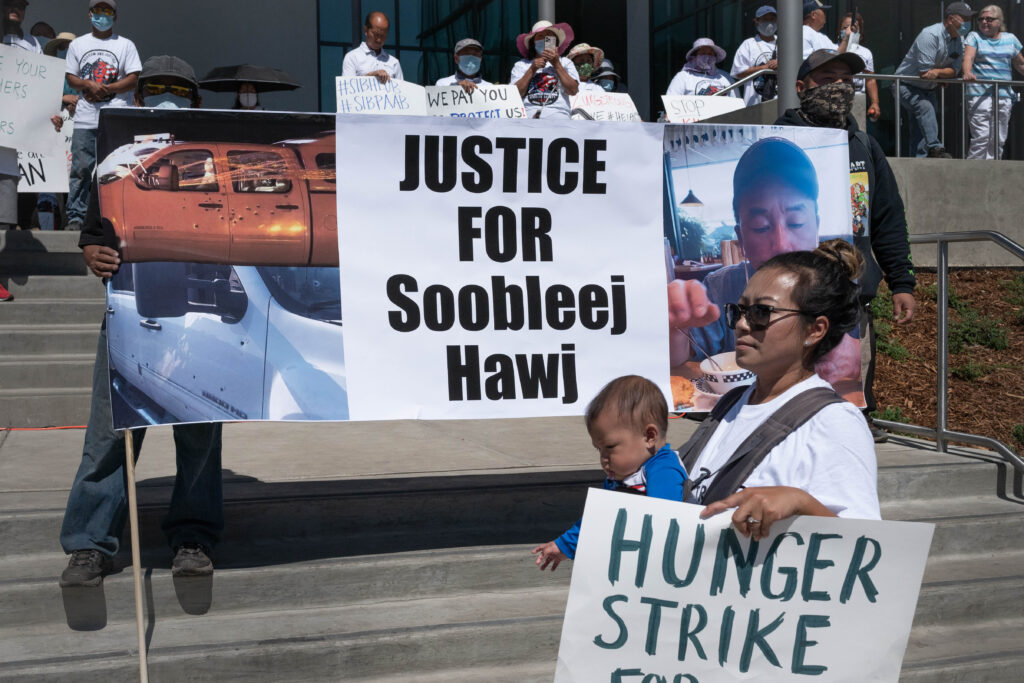
By Pamela Cruz. Pen sula 360 Press [P360]
After 19 days of hunger strike, Hmong community activist Zurg Xiong has ended his hunger strike to demand an investigation into the killing of farmer Soobleej Hawj by Siskiyou County sheriff's deputies in late June.
With sandwiches and
